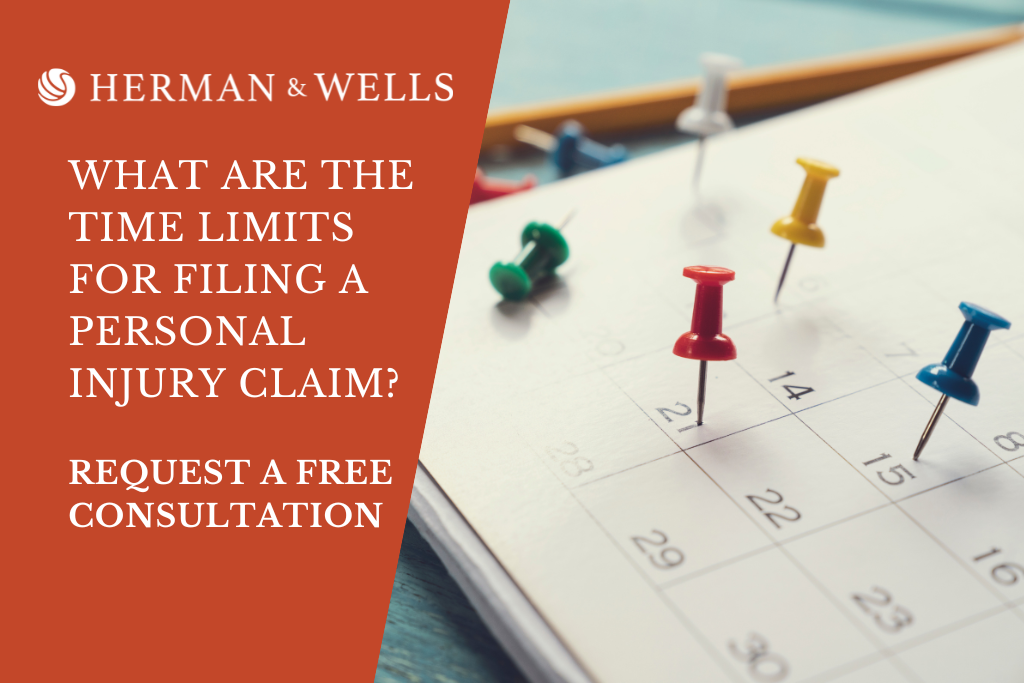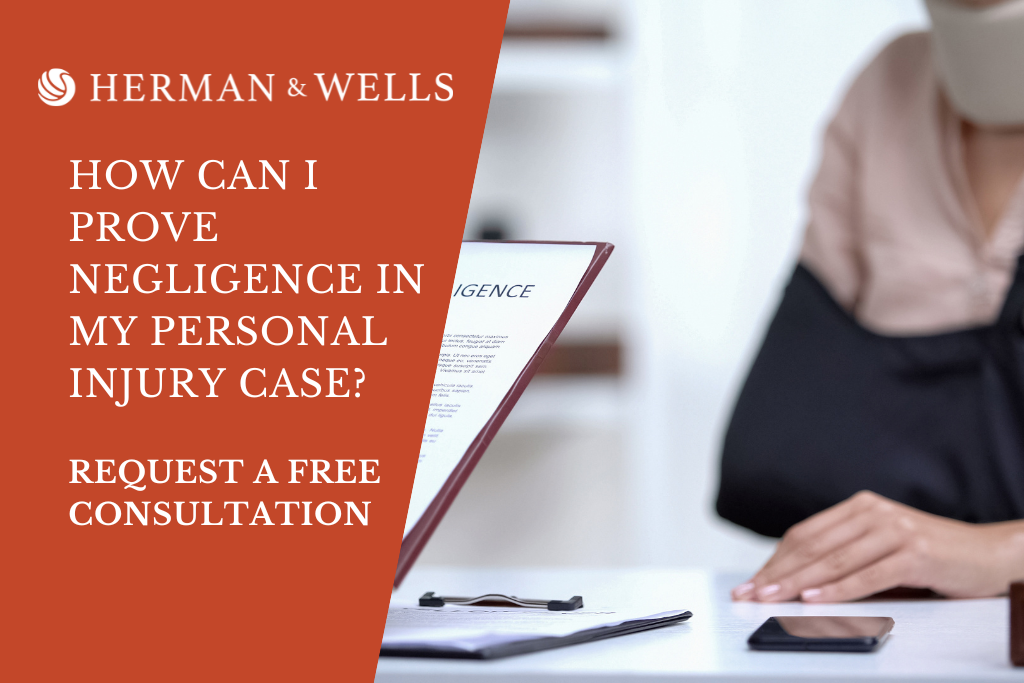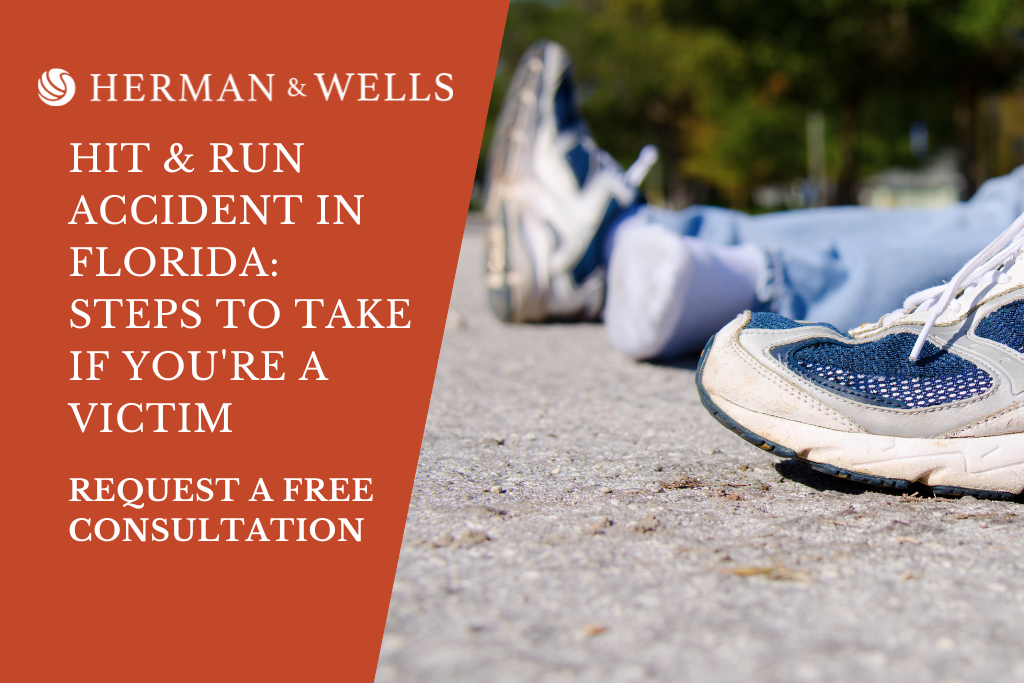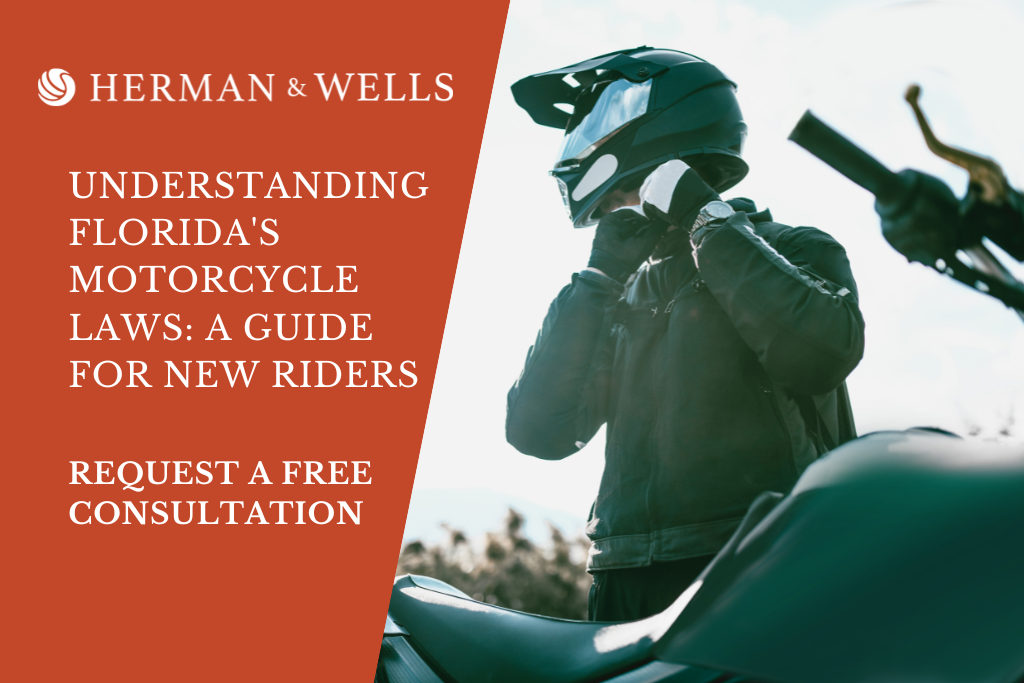Cycling in Florida is a wonderful way to embrace the state’s natural beauty while staying environmentally conscious and active. However, ensuring your safety on the road is of utmost importance when riding a bicycle. In this blog post, we’re sharing the top ten tips to help you avoid bicycle accidents in Florida, ensuring your cycling experience is both enjoyable and secure.
Should you ever find yourself involved in a bicycle accident in Florida, remember that you’re not alone. Our dedicated personal injury lawyers at Herman and Wells are here to support you! Your safety and rights matter to us, and we’re prepared to assist you in navigating the bicycle accident claim process. Reach out to us at (727) 821-3195 for a free consultation.
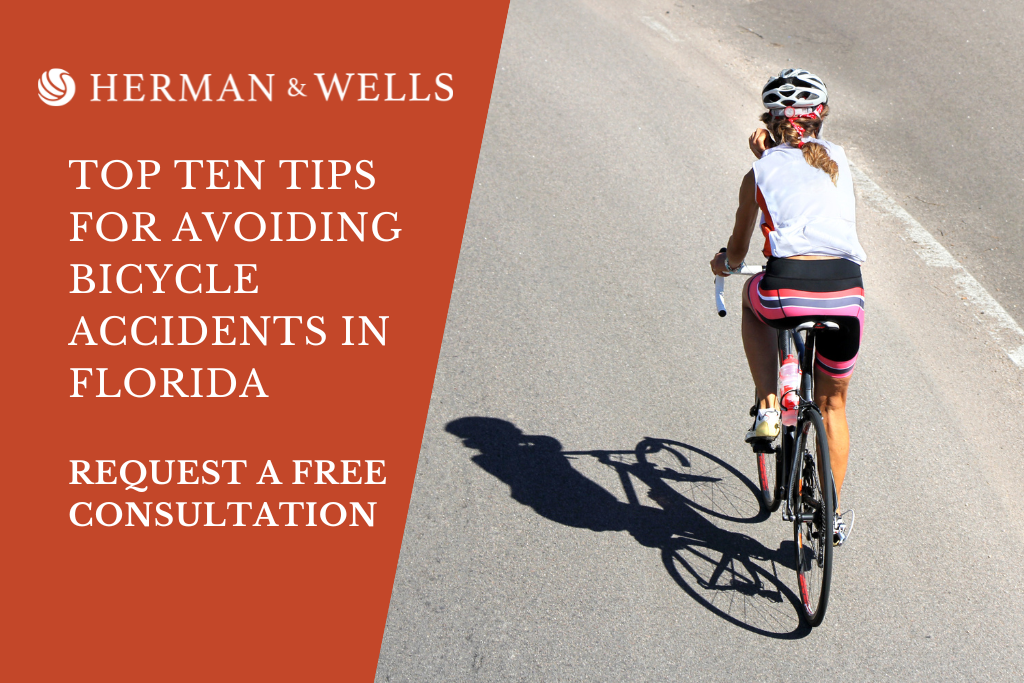
The Cliff Notes: Key Takeaways From This Post
- 1Cycling in Florida requires careful attention to safety due to unique weather conditions and traffic challenges.
- 2Understanding and respecting traffic laws is essential for safe biking.
- 3Always wear proper bicycle safety gear, including a well-fitted helmet and reflective clothing.
- 4Regular bicycle maintenance checks help prevent accidents caused by mechanical failures.
- 5Enhance your visibility to other road users by using lights, reflectors, and bright clothing.
- 6Practice defensive biking to anticipate and avoid potential hazards on the road.
- 7Avoid riding in a vehicle’s blind spot to reduce the risk of accidents.
- 8Keep a safe distance from parked cars to prevent collisions with opening doors.
- 9Use hand signals and eye contact to communicate your intentions to other road users.
- 10Navigate intersections with caution, obey traffic signals, and make eye contact with drivers.
- 11Stay aware of road conditions and weather to adapt your biking strategies accordingly.
- 12If you’ve been injured in a bicycle accident in Florida, contact the personal injury lawyers of Herman & Wells for assistance.
Tip 1: Understand And Respect Florida Traffic Laws
To avoid bicycle accidents in Florida, it’s crucial to have a solid understanding of and respect for the state’s traffic laws. Bicycles are considered vehicles under Florida law, and cyclists are subject to the same rules and responsibilities as motorists. This means stopping at stop signs and red lights, yielding the right-of-way when required, and using hand signals for turns.
Respecting traffic laws ensures your safety and contributes to the predictability of traffic flow, reducing the risk of accidents. Understanding and adhering to these laws is fundamental for a safe and enjoyable cycling experience in Florida.
Tip 2: Always Wear Proper Bicycle Safety Gear
When it comes to bicycle safety, wearing the right gear is non-negotiable. The most critical piece of equipment is your helmet. Make sure to choose a helmet that meets safety standards and fits snugly on your head. In Florida, helmets are required by law for cyclists under 16 years old, but it’s a wise choice for riders of all ages.
Choosing The Right Helmet And Protective Clothing
In addition to a helmet, wearing protective clothing such as gloves, knee and elbow pads, and reflective clothing can enhance your safety on the road. These items provide crucial protection in case of a fall or collision and make you more visible to motorists, reducing the risk of accidents. Remember, proper safety gear is your shield against potential injuries while cycling in Florida.
Tip 3: Maintain Your Bicycle Regularly
To ensure a safe and smooth ride, regular bicycle maintenance is essential. Make it a habit to check your bike regularly, especially before heading out on a ride. Essential maintenance checks for your bike include:
Essential Maintenance Checks For Your Bike
- Tire Pressure: Check and adjust tire pressure as per manufacturer recommendations. Underinflated tires can lead to instability, while overinflated tires may affect control.
- Brakes: Test your brakes to ensure they are responsive and functional. Worn-out brake pads can significantly increase stopping distances.
- Chain and Gears: Lubricate the chain regularly and inspect gears for smooth shifting. A well-maintained drivetrain ensures efficient pedaling and control.
- Lights and Reflectors: Ensure that your bike’s lights and reflectors are working correctly, especially if you ride during low-light conditions. Being visible to others is crucial for safety.
- Frame and Fork: Check for cracks or damage to the frame and fork, as these components are critical for stability.
- Quick Releases: Ensure that all quick releases are secure to prevent any unexpected wheel or component dislodgment.
Tip 4: Be Visible To Other Road Users
Enhancing your visibility on the road is crucial for bicycle safety. Florida’s roads can be busy, and making sure that other road users can see you significantly reduces the risk of accidents.
Use bright and reflective clothing when riding, especially during low-light conditions. Equip your bicycle with lights and reflectors, both at the front and rear, to increase your visibility to motorists. Position yourself in your lane where you are most visible, and avoid riding in blind spots. Making eye contact with drivers at intersections can also help ensure they have seen you.
Tip 5: Practice Defensive Biking
Practicing defensive biking is essential for staying safe on Florida’s roads. It involves staying alert, anticipating potential hazards, and taking proactive measures to avoid accidents.
Always be aware of your surroundings and stay focused on the road. Maintain a safe distance from vehicles and anticipate the actions of drivers. Defensive biking also means being prepared for sudden stops in traffic, vehicles changing lanes without signaling, and pedestrians crossing unexpectedly. Florida’s weather conditions can change rapidly, so adjust your riding style in adverse weather for better control and safety.
Tip 6: Avoid Riding In A Vehicle’s Blind Spot
Riding in a vehicle’s blind spot is a common cause of bicycle accidents, as it makes you invisible to the driver. To ensure your safety on Florida’s roads, employ strategies for safe positioning around cars.
Strategies For Safe Positioning Around Cars
When cycling near motor vehicles, make sure to stay out of their blind spots. Ride either slightly ahead or behind a vehicle, but never directly alongside it. Be especially cautious around large trucks and buses, as they have larger blind spots. Use your mirrors to check for approaching vehicles, and when passing, do so quickly while maintaining a safe distance.
Practicing safe positioning around cars and avoiding a vehicle’s blind spot can significantly reduce the risk of accidents, allowing you to enjoy a safer cycling experience in Florida.
Tip 7: Keep A Safe Distance From Parked Cars
Maintaining a safe distance from parked cars is a crucial safety measure for cyclists in Florida. Parked cars can present unexpected dangers, and staying vigilant can help prevent accidents.
When riding near parked cars, allow at least three feet of space between you and the parked vehicles. This buffer zone provides room to react if a car door suddenly opens. Be prepared for occupants to exit vehicles, and watch for pedestrians who may step out from between parked cars.
Tip 8: Use Hand Signals And Eye Contact
Communication is key to safe cycling in Florida. Utilizing hand signals and establishing eye contact with other road users can significantly contribute to accident prevention.
When turning or changing lanes, clearly and unmistakably signal your intentions using hand signals. This helps both motorists and fellow cyclists anticipate your moves. Additionally, strive to establish eye contact with drivers at intersections or when merging into traffic. Visual contact ensures that you have been noticed and can proceed safely.
Using hand signals and making eye contact enhances communication on the road, reducing the risk of accidents and promoting a safer cycling experience in Florida.
Tip 9: Navigate Intersections With Caution
Intersections can be challenging for cyclists in Florida’s bustling traffic. To ensure your safety, always approach intersections with caution, obey traffic signals, and make eye contact with drivers when possible. Practicing these measures will help you confidently cross intersections and enjoy a secure cycling experience in the Sunshine State.
Tip 10: Stay Aware Of Road Conditions And Weather
Staying aware of road conditions and weather is essential for safe cycling in Florida. The state’s climate can change rapidly, affecting road conditions and visibility.
Before your ride, check the weather forecast to prepare for rain, strong winds, or sudden temperature shifts. Be cautious on wet roads, as they can be slippery, and reduce your speed accordingly. Avoid riding during heavy rain or storms for your safety.
Additionally, pay attention to road conditions, especially in areas with potholes or uneven surfaces. Staying aware of these factors will help you adapt your riding style and ensure a safer cycling experience in Florida.
Adapting To Florida’s Unique Weather Challenges
Florida’s climate presents unique weather challenges for cyclists. The Sunshine State is known for its sudden rain showers and high humidity, which can impact your cycling experience.
To adapt to Florida’s weather challenges, consider these tips:
- Rain Gear: Carry lightweight rain gear, such as a waterproof jacket, in case of unexpected rain showers. It can keep you dry and comfortable.
- Hydration: Stay well-hydrated, especially in hot and humid conditions. Drink water before, during, and after your ride to prevent dehydration.
- Sun Protection: Florida’s sun can be intense. Wear sunscreen, sunglasses, and a wide-brimmed hat to protect yourself from harmful UV rays.
- Plan Ahead: Check the weather forecast before your ride and be prepared to adjust your plans if necessary. Avoid cycling during severe storms for your safety.
- Road Conditions: Be cautious on wet roads, as they can be slippery. Reduce your speed and maintain a safe distance from vehicles.
Injured In A Bicycle Accident? Contact Our Florida Personal Injury Lawyers
If you’ve been injured in a bicycle accident, our team of experienced personal injury lawyers is ready to provide the support you need. We comprehend the unique challenges that cyclists encounter in the Sunshine State, and our commitment is to ensure you receive the compensation you rightfully deserve.
We’re here to walk you through the entire process, safeguard your rights, and assist you in your journey to recovery from bicycle accident injuries. Contact our Florida personal injury lawyers today at (727) 821-3195 for a free consultation. Your peace of mind matters.

